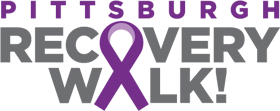Meet the 2020 Pittsburgh Recovery Award Winners
In 2020, we again issued a call for nominations for three recovery award categories:
Recovery Advocate: An individual who has worked to change policy or public opinion about addiction and recovery
Recovery Caregiver: An individual who provides outstanding direct care to people with addiction/people seeking recovery (e.g., recovery supports, counselors, case managers, medical professionals, first responders, and more)
Recovery Pathway Supporter: An individual who has worked to broaden the range of recovery pathways available in the greater Pittsburgh area (e.g., someone who has worked to promote MAT, harm reduction, alternative peer support groups, etc.)
Here are the 2020 winners.
RECOVERY ADVOCATE: LAURIE JOHNSON-WADE

Laurie Johnson-Wade is the co-founder of Lost Dreams Awakening (LDA), a recovery community organization in New Kensington, and a leader in western Pennsylvania and beyond.
A New Kensington native, Laurie recognized the need for a supportive organization in her community, and in 2014, Laurie and her husband VonZell made the bold decision to create LDA. Since then, the national advocacy organization Faces and Voices of Recovery has pointed to LDA as a leader in its field. In 2017, Laurie was invited to the White House to advise the Director of the Office of National Drug Control Policy on the importance of peer recovery support.
LDA strives to address the whole person and as such, offers recovery meetings, family support, peer recovery support education and empowerment, and just a positive gathering space for anyone who has been impacted by substance use disorder. LDA has placed a big emphasis on the family unit, and has made it a priority to provide support to families who have lost loved ones to overdose.
Laurie was nominated by her colleagues at LDA, who said, “Laurie thinks outside the box and she honors and welcomes all pathways to recovery.”
Another person put it even more simply. She said, “Laurie GETS IT DONE.”
RECOVERY CAREGIVER: GEORGE JONES

George Jones is the co-founder of an outpatient mental health practice who has had a personal and professional commitment to helping people with substance use disorders for over 25 years.
George is committed to reducing health disparities in the African American community. In 2014, he and his wife Sharon opened a clinic in East Liberty because they saw a lack of culturally-competent behavioral healthcare and the need for services that address the impact of trauma. Now, their private practice offers a buffet of services to individuals, couples, and families, while George continues to serve as the Clinical Director of an inpatient addiction treatment facility as his day job.
Despite the fact that George has risen to a leadership role in the addiction treatment field, he remains dedicated to providing direct care to people with SUDs. He continues to facilitate groups, engage clients, provide linkages to other services, and help people integrate into 12-step communities.
George’s colleague at G&S Counseling Services nominated him, saying, “He is in the trenches with people living with health disparities” and “he goes above and beyond to meet their needs.”
RECOVERY PATHWAY SUPPORTER: BRIAN NUCKOLS

Brian Nuckols is a local coordinator for SMART Recovery who has been facilitating SMART Recovery meetings in Pittsburgh for over two years.
In 2018, Brian developed a partnership with the Carnegie Library of Pittsburgh West End Branch to help with the introduction of SMART Recovery into the community. Not only did he use the library as a meeting location, he also worked with the library to ensure that a diverse selection of recovery-themed books was available for loan, which benefited SMART Recovery members and the community at large.
After one year, there were two in-person meetings per week and less than two years later, Brian has grown SMART Recovery to four weekly meetings. When the COVID-19 pandemic hit, Brian led the effort to transition to online meetings, which actually increased participation in SMART Recovery and helped prevent isolation, anxiety, and other mental health problems.
Brian was nominated by members of the recovery community that he has helped build, who said, “Brian’s innovation and tech-savviness have helped ease the burden of mental health concerns in our community.”



